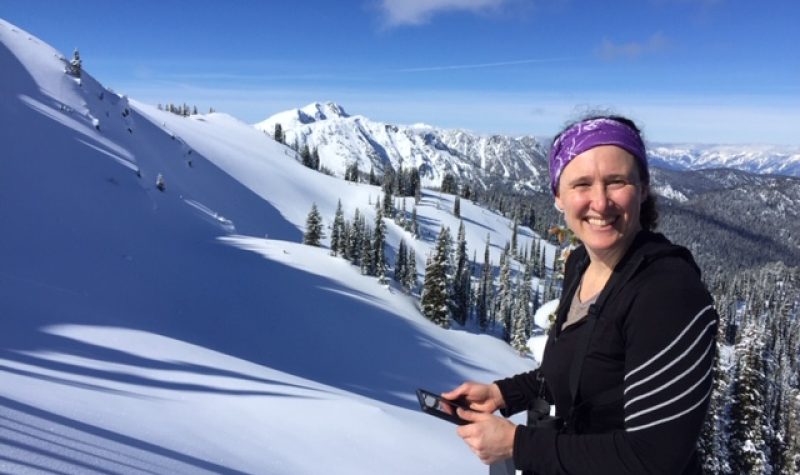The ongoing study of the elusive wolverine in the South Columbia Mountains has found there are a lot fewer wolverines than previously thought.
Doris Hausleitner, a wildlife biologist based in Nelson, is part of the two-person team spearheading the South Columbia Mountains Wolverine Project. She and Andrea Kortello began the study to fill an information gap. Not much is known about the wolverine, but studies were being performed in the U.S., Alberta and northern B.C. — essentially, all around the Kootenay Region.
A challenge of the study is the evasive nature of the wolverine and their wide-ranging habitat. Two biologists cannot conceivably cover that terrain, so they turned to the Wolverine Watch for reports from backcountry recreationalists. All of the dens the project studies were found by citizen scientists.

Wolverine tracks, as seen near Nelson, BC. Photo by Darren Davidson
Once the project got underway, it published a paper last year revealing the suggestion that trapping wolverines is not sustainable. In August 2020, new trapping regulations came into effect where there was no limitation previously. A moratorium is banning the trapping of wolverines in the Kootenay region, as the study continues.


